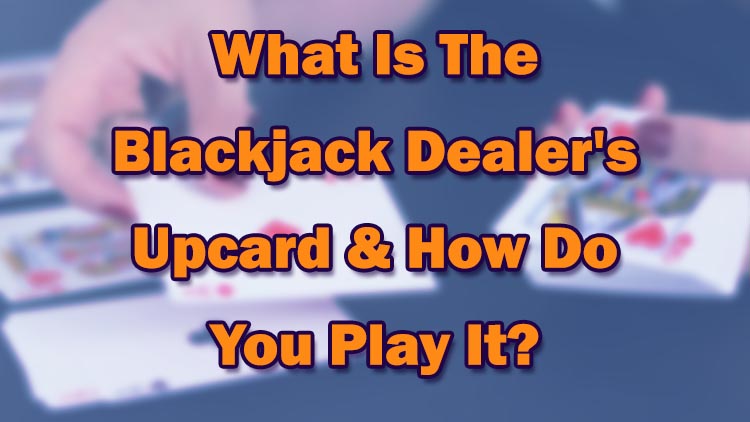
Welcome to our latest blog post at Egypt Slots, where we're diving into the world of blackjack, a classic casino game cherished by players around the globe.
Today, we're focusing on one of the game's most pivotal aspects: the dealer's upcard. Whether you're a complete novice or simply looking to brush up on your strategy, understanding the dealer's upcard and how it influences your play is crucial.
This guide will walk you through the basics, ensuring you grasp how to effectively respond to the dealer's visible card. So, read on to find out more.
What Is The Dealer's Upcard In a Game of Blackjack?
In a game of blackjack, the dealer's upcard is one of the two initial cards dealt to the dealer; it is the one placed face up for all players to see.
This card is pivotal as it gives players insight into the potential strength of the dealer's hand. Unlike the dealer's "hole card," which remains face down and hidden, the upcard can significantly influence your decision-making. Knowing the value of this card helps players strategise whether to hit, stand, double down, or split their own hand, aiming to beat the dealer without exceeding a total of 21.
Understanding the importance of this card is a fundamental step in effectively utilising basic blackjack strategy.
Reading The Dealer's Upcard
Reading the dealer's upcard in blackjack, combined with evaluating your own hand, forms the cornerstone of effective blackjack strategy.
This crucial comparison between the dealer's visible card and the total value of your initial two cards enables players to make better-informed decisions than deciding whether to hit, stand, double down or split a pair based solely on your own hand. There are more statistically advantageous decisions to take than others based on this comparison.
These strategies aim to optimise your chances of winning by considering the potential hand the dealer could end up with, probability-wise, given their upcard. Grasping this concept is essential for anyone looking to enhance their blackjack gameplay and decision-making skills.
How To Play Your Hand Against The Dealer's Upcard?
So, the key question is: how do you play your hand based on the dealer's visible card? That's where blackjack basic strategy charts come into play. These charts show the most statistically optimal move for the player based on their hand and the dealer's upcard.
Here, we shall discuss a few of the possible upcard values and how to play your hand against them.
Playing Against 2 or 3 Upcard
If the dealer is showing a 2 or a 3 on their upcard, then you should stand if your hand totals hard 13 or higher, hit if your hand totals hard 5, 6, 7, 8 or 12, and double down if possible on a hand of hard 9, 10 or 11.
If you have a soft 13, 14, 15, or 16, you should hit. You should stand on soft 18, 19 or 20 and double down on soft 17.
The rules can differ if you have a pair.
Playing Against 4, 5 or 6 Upcard
If the dealer is showing a 4, 5 or 6, then you should hit on a hard 5, 6 or 7, double down on hard 8, 9, 10 or 11, and stand on hard 12-17.
If you have a soft 13-18, you should double down and stand on soft 19 and 20. Again, the guidance for pairs differs.
Playing Against 7 or 8 Upcard
If the dealer is showing a 7 or 8, then you should hit on a hard 5-9 and 12-16, double down on a hard 10 or 11, and stand on a hard 17.
If you have a soft 13-17, you should hit and stand on soft 18, 19 and 20. Yet again, if you have pairs, then the rules are different.
Conclusion
In conclusion, the essence of basic blackjack strategy lies in reading the dealer's upcard and assessing it alongside the total of your own hand. This approach enables players to make decisions that are statistically more advantageous versus making choices based solely on the cards they hold.
Considering the dealer's upcard allows you to strategise effectively, guiding you on whether to hit, stand, double down, or split.
Of course, blackjack is still, ultimately, a game of chance. However, it is one where it is possible to lower the house edge (though not eliminate it entirely) with basic strategy.
Above all else, please gamble responsibly. Set a budget, stick to it and only play with money you are comfortable losing.
Please Note: The above is not intended as gambling advice and should not be taken as such. This blog post is a piece reporting on basic blackjack theory in relation to the dealer's upcard. It is for educational and entertainment purposes only. Please do your own research and do not rely solely on the information given in this article.
*All values (Bet Levels, Maximum Wins, etc.) mentioned in relation to this game are subject to change at any time.
